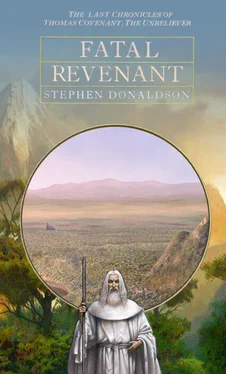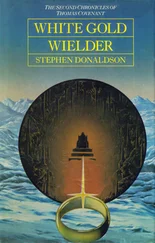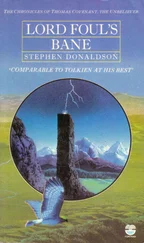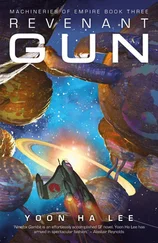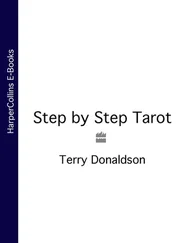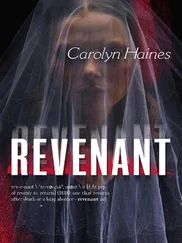“It must not,” countered Clyme promptly. “There is no need. And the will of the Masters has not been consulted.”
The Mahdoubt squinted at Clyme with her orange eye. In spite of her weakness, she retained enough force to silence him. “Were you efficacious against the Harrow, Master? Did he not dismiss your efforts, as did the Vizard in a distant age and place? Then do not speak to the Mahdoubt of “need”. While she retains any portion of herself, she will determine what is needful.”
To Linden’s surprise, all three of the Humbled bowed, and said nothing more.
While she scrambled to grasp why any Master would show the Mahdoubt such respect when earlier the Humbled had attacked the Harrow without provocation, Stave said. “If there is much that must be said, perhaps it would be well to speak first of this “service” which the Harrow may elect to perform for the Chosen.”
The Mahdoubt shook her head. “Nay. Doing so will alter my lady’s path-and the Mahdoubt has given her life in the belief that my lady must be trusted, though her deeds engender horrors. The Mahdoubt will not disturb a future which eludes her sight.”
“Then tell me why you did it,” Linden asked; pleaded. “I needed you at first. You saved me. But then I could have defended myself,” while the Harrow’s intentions had only been delayed. “You didn’t have to sacrifice yourself.”
The woman sighed. Has the Mahdoubt not said-assuredly, and often-that she is weary?” Linden could feel the Mahdoubt’s vitality slowly seeping from her limbs. “She prefers her own passing to a life in which she may behold the end of days.”
Then she turned her blue eye on Linden. “Yet if she is craven, persuaded to madness and death by apprehension, she is not merely so.
“My lady, you have become the Mahdoubt’s friend, as she is yours. You are sorely transformed. That is sooth. You have become fearsome. Yet in Garroting Deep, you found within yourself the means to warm the Mahdoubt’s heart. There she learned that the mystery of your needs and desires is unfathomable. It resembles the mystery of life, rich in malice and wonder. That good may be accomplished by evil means defies explication. Yet the Mahdoubt has assured herself that you are equal to such contradictions. Therefore she believes that you must not be turned aside.”
Slowly the Mahdoubt lowered her head to rest her tired neck. At the same time, however, her tone became sharper, whetted by indignation.
“My lady, the Harrow’s purpose lies athwart your path. His blandishments you may withstand. But if he failed here to consume your choices and your love, he would attempt the same wrong at another time. Oh, assuredly. Again and again he would attempt it, relentlessly, until your strength faltered. Then would you be altogether lost.
“This the Mahdoubt could not suffer, trusting you as she does. Therefore has she spent her mind and life to obtain the Harrow’s oath of forbearance.”
Aching at the scale of the Mahdoubt’s sacrifice, Linden said in a small voice. “Then tell me how. How did you beat him?”
“My lady,” the Mahdoubt sighed, “knowledge precludes knowledge. Our mortality cannot master one thing, and then another, and then yet another. The Harrow unmade the Demondim. The Mahdoubt could not have done so. But she has given centuries to the contemplation of Time. He has not. He passes from place to place as he wills-oh, assuredly-but he cannot journey among the years.
“The Mahdoubt gained his oath by revealing that her knowledge might displace him to another age of the Earth, a time in which the objects of his greed would not exist. There he would remain, abandoned, useless to himself, until his spirit was broken.
“For that reason, he acknowledged defeat.”
Her muscles trembled as she shifted her attention to Stave.
“Now, Haruchai ,” she commanded softly, “you must speak. You have ascertained that the Mahdoubt is of the Insequent. You have been informed of the Vizard’s passing. And you have heard my lady’s mention of the Theomach. Share with her the tale of your people. It is the last boon which the Mahdoubt may grant.”
In the Harrow’s absence, his campfire died slowly, and with it the yellow elucidation of the flames. Shadows passed like small gusts of night over the older woman’s sagging frame and Stave’s unread countenance. More stars became visible overhead, throngs poised to hear or ignore what was unveiled in the dark.
Unsteady reflections in the former Master’s eye suggested conflicting emotions, obscure reluctance and rue, as he gazed past the Mahdoubt at Linden. “Chosen,” he said in a voice that sounded as removed as Revelstone and the Westron Mountains. “in the distant past, some centuries before the coming of the Haruchai to the Land, our ancestors encountered the Insequent.”
While Linden studied him in surprise, he continued. “We have ever been a combative race, glorying in struggle, for by such contests we demonstrate our worth-and it is by our worth that we survive the harsh ardour of the peaks. We have eschewed weapons because they detract from the purity of our battles, and because we did not desire our own destruction. Yet for many a century we were content to battle among ourselves, striving for wives, and for supremacy of skill, and for pride.
“There came a time, however, when we were no longer content. Ourselves we knew too well, speaking mind to mind. We desired to measure our worth against other peoples in less arduous climes, for we conceived that the rigors of the mountains had made us great. Therefore twenty-five score Haruchai journeyed together westward, seeking some race whom we might best in battle.”
Stave’s tone took on a defended formality as he explained, “Understand, Chosen, that we did not crave dominion. We sought only to express the heat of our pride.”
Peripherally Linden was aware that the Humbled had turned away as if to disavow Stave’s tale-or his telling of it. Galt, Clyme, and Branl withdrew to the edges of the light, standing guard. But she paid no real attention to them. She was immersed in the sound of Stave’s voice.
He spoke of we as though he had been one of those five hundred Haruchai thousands of years ago.
This, she knew, was an effect of their mental communion. They had shared their thoughts and passions and memories so completely, and for so long, that each of them embodied the long history of their race. Stave remembered his distant ancestors as if he had been present with them.
“After a trek of many days,” he said, “we at last left behind our high peaks and biting snows, and found a fertile lowland lush with crops and waters, a region in which we deemed that even a slothful and unstriving people would flourish. For a time, we encountered none of the region’s inhabitants. At last, however, we came upon a lone but with a single occupant.
“The hut was a rude structure of wattle and thatch, and the man who emerged from it was clad in rags which scarcely covered his limbs. Furthermore both his flesh and his hair were clotted with filth, for he seemed unconscious of his person.
“Yet he addressed us courteously, offering both shelter and sustenance, though we were twenty-five score and his but was small. In response, we declined, also courteously. Then he inquired, still courteously, of our purpose in the land of the Insequent. Intending no offense to one who plainly could not oppose us, we replied that we knew nothing of the Insequent, but that we had come in search of combat, seeking confirmation that our prowess knew no equal.”
The effect of what she heard on Linden was both immediate and detached. She seemed to experience Stave’s tale through a veil of imposed dispassion. She saw everything that he described, but it did not touch her. Her sensitivity to the Mahdoubt’s sinking vitality muffled her reactions.
Читать дальше
